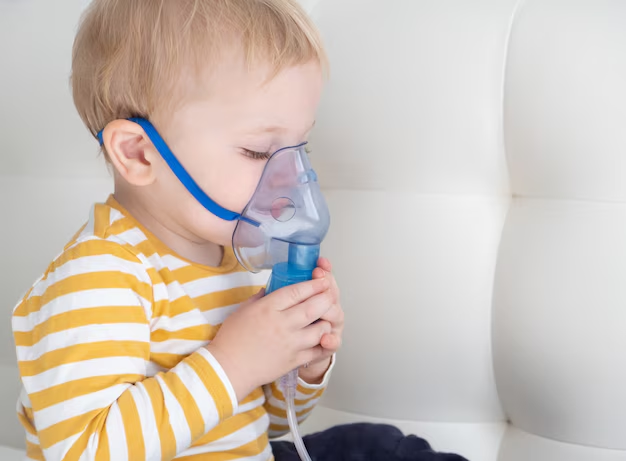Can Asthma Really Disappear? Here’s What You Need to Know
Asthma is a complex and often lifelong condition that affects millions worldwide. For those living with asthma, the question of whether it can ever truly “go away” is a source of hope and confusion. In this comprehensive guide, we will explore the nuances of asthma, its causes, management strategies, and whether it can ever completely disappear. Our goal is to empower you with knowledge and understanding so you can navigate your asthma journey with confidence.
Understanding Asthma
Asthma is a chronic respiratory condition characterized by inflammation and narrowing of the airways, leading to symptoms such as wheezing, shortness of breath, chest tightness, and coughing. It can range from mild to severe and can significantly affect quality of life.
Causes and Triggers
Asthma does not have a singular cause; rather, it's the result of a combination of genetic and environmental factors:
- Genetic predisposition: A family history of asthma or allergies can increase your risk.
- Environmental factors: Exposure to allergens like pollen, dust, mold, or pet dander can trigger asthma symptoms.
- Lifestyle factors: Smoking, pollution, and occupational hazards play significant roles in exacerbating asthma.
Who is Affected?
Asthma affects people of all ages, but it often begins in childhood. It's essential to understand that while some children may outgrow their symptoms, many continue to deal with asthma into adulthood.
Can Asthma Go Away on Its Own?
The notion of asthma disappearing entirely is complicated. While some people experience significant improvement or remission at certain life stages, asthma typically remains a lifelong condition.
Asthma in Children vs. Adults
- Children: Some children may experience a reduction in asthma symptoms as they grow older, particularly during puberty. This period of remission is due to developmental changes in the airways and immune system.
- Adults: For others, asthma can persist or even first emerge in adulthood. Factors like hormonal changes, lifestyle, and environmental exposures can influence the course of the condition.
Factors That Influence Asthma Remission
- Changes in immune response: As children grow, their immune systems develop, sometimes leading to reduced hypersensitivity to triggers.
- Lung development: Larger airway capacity in adolescents can reduce the frequency of asthma episodes.
- Trigger management: Avoiding known triggers and allergens can lead to a reduction in symptoms.
Managing Asthma Effectively
While asthma may not disappear completely, effective management can lead to a significant improvement in quality of life. Here are key strategies:
Medication and Treatment
- Inhalers: These remain the cornerstone of asthma management, providing quick relief or long-term control.
- Antihistamines and oral medications: Often used for people whose asthma is closely linked with allergies.
- Biologics: Newer medications that target specific immune pathways, offering hope for those with severe asthma.
Lifestyle Adjustments
- Environmental control: Regular cleaning to reduce indoor allergens and air purifiers can help.
- Exercise: Regular physical activity strengthens the lungs and can improve asthma symptoms, but should be approached with caution and medical guidance.
- Diet and nutrition: A balanced diet supports overall health and can potentially reduce inflammation.
Monitoring and Regular Check-ups
- Maintaining a peak flow meter to monitor lung capacity can predict flare-ups.
- Regular visits to a healthcare provider ensure personalized treatment adjustments.
Is Cure a Possibility?
Despite advances in treatment, a complete cure for asthma remains elusive. However, ongoing research continues to enhance our understanding, aiming for better management tools and potential breakthroughs.
Research and Innovations
- Gene therapy: Examines how modifying genes could alter immune responses.
- Immunotherapy: Aims to desensitize the immune system to common allergens.
- New drug development: Scientists are exploring drugs that target different inflammation pathways.
Practical Tips for Living with Asthma
Successfully managing asthma involves a proactive approach. Here are some practical tips:
- Stay informed: Keeping abreast of new treatments and research can help you make educated decisions about your asthma management.
- Allergy-proof your home: Use dust mite covers, regularly wash bedding, and keep humidity levels low.
- Quit smoking: If you smoke, seek help to quit as smoking can heavily exacerbate asthma symptoms.
- Create an action plan: Work with a healthcare provider to establish a plan for managing symptoms and knowing when to seek emergency help.
Embracing Support and Community
Living with asthma can be challenging, but support is available:
Family and Friends
- Encourage family members to learn about asthma to provide better support.
- Involve loved ones in your action plan so they can assist during emergencies.
Support Groups
- Joining online or local support groups can offer emotional support and practical tips from those experiencing similar challenges.
The Path Ahead
While asthma may not “go away” in the traditional sense, you can take control of it. By understanding your triggers, adhering to a management plan, and keeping abreast of new treatments, you can lead an active and fulfilling life.
Key Takeaways & Next Steps 🗝️
- Asthma is complex: Can improve or worsen over time.
- Effective management: Key to minimizing symptoms and improving quality of life.
- Stay updated: Ongoing research might open new doors for treatment.
- Proactive lifestyle choices: Essential for avoiding triggers and maintaining lung health.
- Community support: Seek emotional and practical help from groups and loved ones.
By taking these steps, you can enhance your well-being and manage asthma with greater confidence. 🌟

